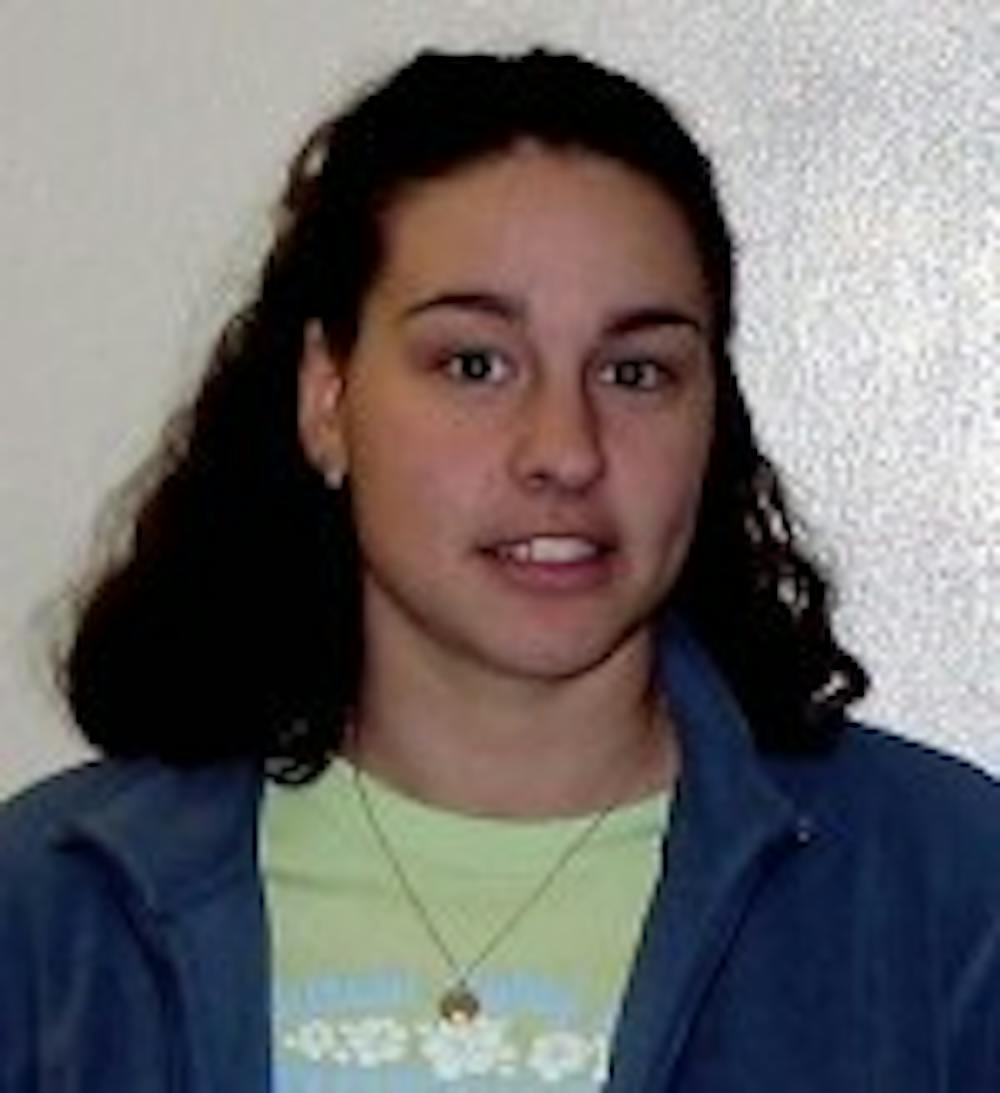As the University Honors and University Scholars programs at UB expand to give qualified students an academic experience outside the norm, nearly one-third of incoming freshmen will receive some form of academic tuition assistance next fall - the highest number in the university's history.
In keeping with the trends across the nation, UB has increased its focus on and commitment to the honors programs and to the students they recruit.
"Our goal has always been to open up honors, and to open up our university for students," said Josephine Capuana, administrative director of the University Honors Program.
The University Honors Program has recently seen a swell to 250 participants, and the University Scholars Program -formerly the Academic Excellence Scholarship Program- which started at 350 students in 1998, will award 700 students scholarships next fall.
Another option, the Minority Academic Achievement Program, grants 20 to 30 scholarships to students each year.
UB's increasing honors offerings mirror national trends. According to a report from the National Collegiate Honors Council, 168 community colleges now offer honors programs, compared to only a dozen 15 years ago.
Along with the increasing number of students entering the Advanced Honors Program, which offers matriculated students many of the benefits of the honors program without a scholarship, an increasing number of students are being offered a different kind of college experience at UB.
Capuana estimated there are currently around 1,200 students enrolled in either the honors or advanced honors programs at UB, with more than 250 students expected to enter the program this fall.
University Honors officials would not provide official enrollment or graduation statistics, citing student record confidentiality, but Capuana said that between 85 and 95 percent of honors students remain in the program until graduation.
For some students, the honors program offers a more focused, smaller-school feel to their first two years, typically filled with large general education classes.
Joseph Menichino, a senior in mechanical engineering, did not maintain the 3.5 GPA necessary to remain in the program during his sophomore year, but he said he retained both his $2,500 scholarship and a positive view of the program.
Along with the scholarship money and perks of the programs, such as the early registration windows students receive, the mandatory honors seminar classes he took with a group of about 15 engineers in the program were "a great benefit" to his studies.
"(The seminar classes) gave me more of a range, and the students who were in them actually wanted to be there," Menichino said. "It made class discussions much better."
Others, like senior pharmacy major Seana O'Mara, said the benefits stop at the lowered tuition costs.
"The only benefits I've had from the program are the money I get and the chance to graduate early," said O'Mara.
While some of O'Mara's mandatory honors seminars counted for general education requirements, allowing her to gain early acceptance to UB's pharmacy school, she said she had to take summer classes each year to fulfill major requirements that were put off so she could take the honors seminars.
Students receiving scholarships from the Scholars Program must meet academic standards just below those of honors students: a 1200 on their SATs as opposed to 1300, and an unweighted high school average of 90, rather than 95. Students in the honors program who fail to make the 3.25 GPA freshman year, or 3.5 in following years, must maintain a 3.0 average to retain their scholarships.
Students like Menichino, who retain honors scholarships after leaving the program, along with those who received $1,000, $1,500 or $2,000 scholarships from the Academic Excellence Program, previously shared none of the benefits - or responsibilities - of honors students. The 1-year-old UB Scholars Program aims to provide students on merit-based scholarships some of the same opportunities as honors students.
"This is an attempt to move from just being a scholarship to being a real program," said UB Scholars Coordinator Ricki Shine. "We're looking to give them the same kinds of experiences, without overloading the honors program."
Along with offering academic planning and counseling for UB Scholars students, Shine said the program has undertaken programs to maintain Buffalo's Olmsted Parks, attempt to support a failing recycling program in Buffalo's schools, and offer a peer mentoring program for students in each major.
Both Shine and Capuana said their programs expect to increase offerings and class size in coming years, but doing so would necessitate an increase in staff to provide adequate counseling and support services for students.
Capuana said the benefits of the honors program go far beyond tuition assistance, offering students a guided exploration of aspects of their major and an opportunity for students advancing to graduate school to work on a major final project or thesis to present to admissions officers.
"The honors program allows students with a keen interest in a particular area, like art, science, engineering or anything, to design something, to actually write something and go in-depth," said Capuana. "It's never a waste of your time. It's a growth process. ... you grow, you understand your capabilities better, and you have a keener awareness of your strengths and defects when you're ready to go on."





